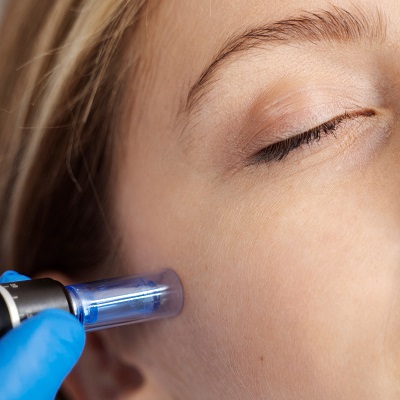
Laser hair removal is an often-used and efficient way to eliminate undesired hair. Moreover, it destroys the hair follicles with targeted, intense light, therefore stopping future hair growth. Though usually safe, some people may have adverse effects, one of which is bleeding. Hence, in this in-depth blog, we will investigate Is It Normal to Bleed After Laser Hair Removal, the causes of this occurrence, how to manage it, and advice for a safe and successful treatment.
Laser Hair Removal
Understanding how laser hair removal works can help you better appreciate the nuances of post-treatment bleeding. Moreover, during the treatment, a laser produces light absorbed by the pigment (melanin) in the hair. When this light energy changes to heat, the hair follicles are damaged. Further, this damage is a favoured approach for long-term hair reduction as it either stops or slows down future hair growth.
Typical After Effects of Laser Hair Removal
Generally speaking, laser hair removal is safe—especially if done under the direction of a competent specialist. Still, it may have adverse effects, the same as any cosmetic surgery. Typical adverse effects are:
Redness and Swelling
Usually, it starts right away after the therapy and lasts a few hours to many days.
Aching or Discomfort
A few people feel slight discomfort or pain during the operation; this typically passes soon after.
Skin Rash
The treated region may seem sensitive, like a minor sunburn.
Colour Variations
Though they may happen, temporary variations in skin colour—darkening or lightening—usually go away with time.
Blisters and Crusting
Rarely, after therapy, the skin may blister or crust over.
Is It Normal to Bleed After Laser Hair Removal?
Although some redness and swelling are normal, however, bleeding is not a usual adverse effect of laser hair removal. Is It Normal to Bleed After Laser Hair Removal? However, it may require a more general problem requiring care. Some possible causes of bleeding after laser hair removal include:
Sensitivity of Skin
Those with delicate skin may react more strongly to the laser, resulting in uncommon mild bleeding.
Strong Treatment Levels
Should the laser settings be too high or firm for your skin type and hair colour, damage beyond the hair follicles may result, maybe resulting in bleeding.
Incorrect Approach
The practitioner’s expertise and experience are crucial. Insufficient understanding of the equipment or improper practice could injure the skin.
Pre-Existing Skin Disorders
Bleeding risk may be raised by conditions such as psoriasis, eczema, or other skin problems.
Sun Exposure:
Tanned or burnt skin is more sensitive and prone to negative responses like bleeding.
Controlling and Stopping Bleeds
Should bleeding follow laser hair removal, you should act appropriately to control it and avoid other problems. These are some rules:
- To stop infection, gently clean the impacted area using mild soap and water.
- Use an antibacterial ointment to assist in area protection and healing promotion.
- Steer clear of scratching or picking in the treated region to avoid further discomfort or infection.
- Should bleeding continue or you have questions, contact your practitioner immediately. Therefore, they may evaluate the matter and provide particular advice.
After Treatment Maintenance
- Use a high-SPF sunscreen or cover the treated area with clothes to prevent sun damage.
- Keep the area moist with a mild, fragrance-free moisturizer to help healing.
- Avoid hot baths and saunas for a few days after treatment to prevent aggravating skin irritation through other activities.
Advice on Safe and Successful Laser Hair Removal
- Choose a reputed clinic with qualified staff.
- Inform your practitioner about any pre-existing skin disorders, medicines, or recent sun exposure.
- Follow your practitioner’s instructions to reduce adverse effects.
- Use a patch test to assess skin response before treatment.
- Monitor your skin’s response after each treatment, and ask your practitioner if you have any questions.
Final Thoughts:
Although not usual, bleeding after laser hair removal might happen in some instances. Further, knowing the possible reasons and acting accordingly to control and stop it will help guarantee a safe and triumphant course of therapy. Moreover, choosing a trained practitioner, following pre- and post-treatment guidelines, and tracking your skin’s reaction can help you maximise the advantages. In addition, it can help minimise the possible risk of side effects.
Book Your Appointment:
If you have unexpected symptoms or questions regarding your therapy, see an Royal Cosmetic Surgery-PK expert practitioner immediately. You can boost your confidence and get smooth, hair-free skin with the correct care and attention.











Book Appointment